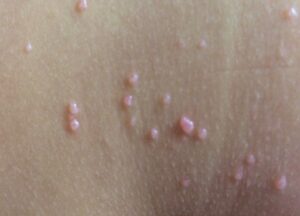Whatever Happened to Zika?


With summer in full bloom, many people may be wondering, “Whatever happened to the Zika virus? Do I still need to worry?” Just a couple years ago, the scare of infant birth defects, including microcephaly, was a very real concern for women who were pregnant or thinking about becoming pregnant. As a result, many women changed their travel plans to ensure they were out of harm’s way. Here is what you need to know about the Zika virus today to stay informed.
According to the Centers for Disease Control and Prevention (CDC), no local mosquito-borne Zika virus transmission has been reported in the continental United States in 2018. The previously designated “red zones” indicating local transmission of the Zika virus have been cleared of all active disease. So in other words, you are safe to travel within the continental United States without the threat of Zika infection. The CDC does warn that sporadic cases of Zika may continue even though all warnings being removed, as the level of risk is unknown, but none have been reported so far this year.
However, just because there are no local cases of Zika transmission, this does not mean you are completely out of the woods when it comes to summer travel. Although the USA is safe, Zika is widespread in other parts of the world, including the Caribbean, South and Central America, Mexico, Africa, Asia, and the Pacific islands. It is important to check the CDC website before you travel to see if the area you are going to is safe. If you are pregnant, you should not travel to these areas. If you are considering becoming pregnant, you should use condoms for at least 6 months after travel in case you or your partner were unknowingly exposed to avoid risk to an unborn baby.
It is always important to protect yourself from mosquitoes at all times, no matter where you are traveling. Here are a few things you should pack to protect yourself and your family, especially if you are going to an area where Zika continues to cause problems:
Environmental Protection Agency (EPA)–registered insect repellant containing DEET or picaridin. Be sure to reapply as often as directed. If you are applying insect repellant on your child, spray it onto your hands first and then apply to the skin.
Long-sleeve shirts and pants
Permethrin-treated clothing
Mosquito netting to cover a stroller, crib, or baby carrier
Condoms to wear during sexual intercourse, as the virus can be spread to the other partner for up to 6 months
Sources:
- Centers for Disease Control and Prevention
- Areas with Risk of Zika.
Powered by Bundoo®










































